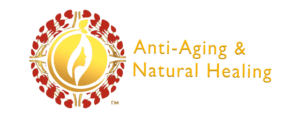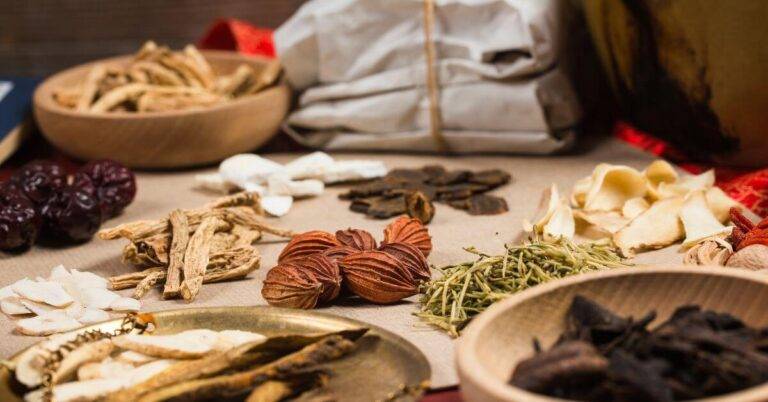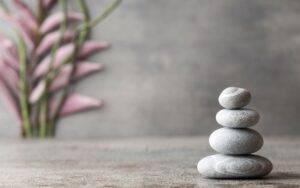Enter the world where cutting-edge medical science and traditional wisdom collide! In this comprehensive guide, we’re about to embark on an enlightening journey through the captivating realm of Traditional Chinese Medicine (TCM).
Get ready to uncover the secrets, explore the techniques, and discover the relevance of TCM in today’s bustling healthcare landscape.
From its foundational concepts to its profound healing powers, we’ll delve deep into the heart of TCM, shedding light on its transformative potential and inviting you to join us on a path toward optimal health and well-being.
Get ready to be inspired and empowered as we unveil the magic of TCM!
What is traditional Chinese medicine (TCM)?
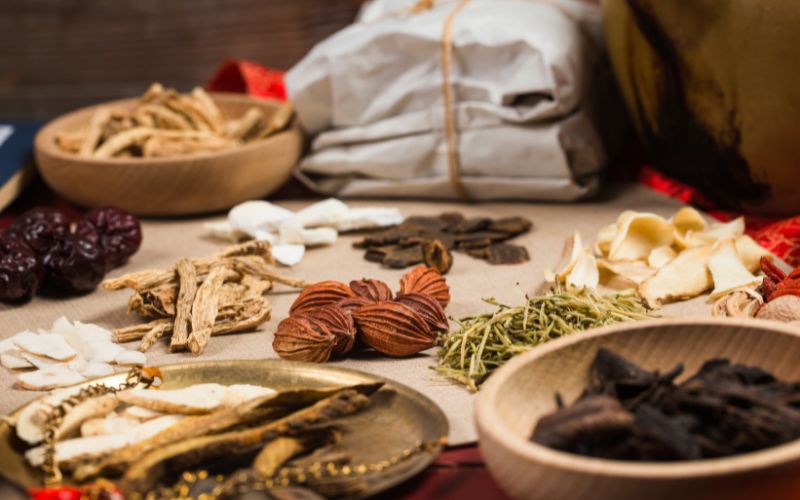
Traditional Chinese medicine (TCM) is a holistic approach to health practiced for thousands of years in China and other parts of Asia.
It is based on the belief that the body’s vital energy, or Qi, flows through meridians or pathways in the body. When there is an imbalance or blockage in this flow, it can result in illness or disease.
What are the fundamental principles of Traditional Chinese Medicine?
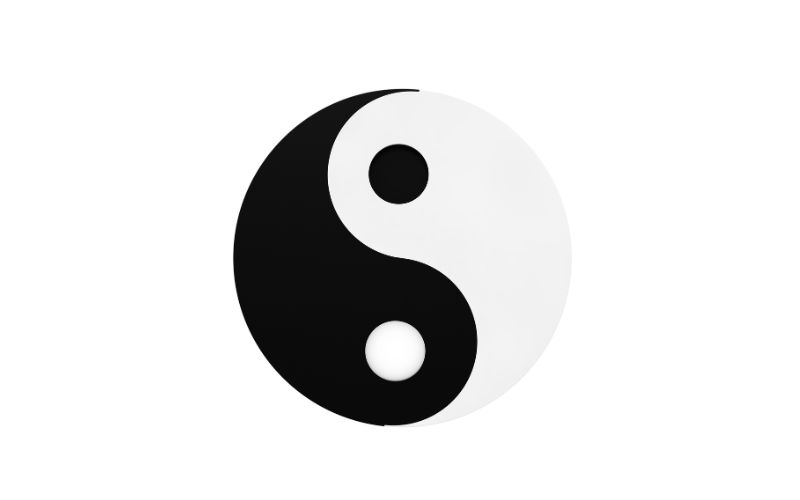
Traditional Chinese medicine is rooted in several key principles that guide its practice and treatment methods:
- Yin and Yang: Traditional Chinese Medicine views the body as a complex system of interconnected organs and functions that are constantly striving for balance. The concept of yin and yang represents these opposing forces that need to be in harmony for optimal health. When there is an imbalance between yin and yang, illness can occur.
- Five Elements: Traditional Chinese Medicine also recognizes the importance of the five elements – wood, fire, earth, metal, and water – in understanding the body’s functioning. Each element corresponds to different organs and bodily functions, and imbalances between these elements can lead to various health issues.
- Qi ( Vital Energy): Qi is considered the vital energy or life force that flows through the body’s meridians. Disease or illness can occur when there is an imbalance or obstruction in the flow of Qi. TCM aims to restore the balance and flow of Qi to promote healing and wellness.
- The Body as a Whole: Traditional Chinese Medicine views the body as a whole system, with each part interconnected and affecting the others. This holistic approach considers not only physical symptoms but also emotional, mental, and spiritual aspects of health.
What are the differences between Western medicine and traditional Chinese medicine?

One of the key differences between traditional Chinese medicine (TCM) and Western medicine is their approach to health and healing.
While Western medicine focuses on treating specific symptoms or diseases with pharmaceutical drugs or surgical interventions, Traditional Chinese Medicine takes a more holistic approach to wellness.
In Chinese Traditional Medicine, the emphasis is on restoring balance and harmony within the body to promote overall health and prevent illness. This often involves using herbal remedies, acupuncture, massage therapy, dietary changes, and lifestyle modifications to address the root cause of health issues rather than just treating symptoms.
Another difference lies in how each system views the human body.
Western medicine typically looks at the body as a collection of separate systems and organs that operate independently.
In contrast, Chinese Traditional Medicine views the body as a whole interconnected system where all parts are interdependent and affect each other.
What are some common practices used in TCM for healing?
Common practices used in Traditional Chinese Medicine (TCM) for healing include:
- Acupuncture: One of the most well-known practices in TCM, acupuncture involves inserting thin needles into specific points on the body to stimulate energy flow and promote healing. This technique is often used to treat pain, stress, digestive issues, and a variety of other health conditions.
- Herbal Remedies: Chinese herbs have been used for centuries to restore balance and address various health concerns. Chinese TCM practitioners may prescribe herbal formulas tailored to an individual’s specific needs to support healing and overall wellness.
- Qi Gong: Qi Gong is a gentle form of exercise that combines movement, breathing techniques, and meditation to cultivate Qi and promote health. This practice is believed to strengthen the body’s energy and improve overall well-being.
- Diet Therapy: TCM emphasizes the importance of nutrition in maintaining health and preventing illness. TCM practitioners may recommend specific dietary changes based on an individual’s constitution and health concerns to support healing and balance.
- Cupping Therapy: Cupping involves creating suction on the skin using glass or plastic cups to promote blood flow, reduce inflammation, and relieve pain. This practice is often used to treat muscle tension, respiratory issues, and other conditions.
- Moxibustion: Moxibustion involves burning dried mugwort near acupuncture points to stimulate energy flow and promote healing. This technique is commonly used to alleviate pain, boost immunity, and improve circulation.
- Tui Na Massage: Tui Na is a form of Chinese therapeutic massage that focuses on applying pressure to specific points on the body to promote healing and relieve pain. This technique can help improve circulation, reduce tension, and enhance overall well-being.
Incorporating these traditional practices into modern healthcare can offer a more holistic approach to healing and wellness.
By combining the ancient wisdom of Traditional Chinese Medicine with modern medical advancements, individuals can access a wider range of treatment options and achieve optimal health outcomes.
It’s important to note that while traditional Chinese medicine has been used for centuries to treat a variety of health conditions, it’s not without its limitations.
Some herbal remedies may interact with prescribed drugs or have potential adverse reactions, so it’s essential to consult with a trained TCM practitioner before incorporating these practices into your healthcare routine.
Additionally, TCM should be used as a complementary therapy alongside conventional treatments, rather than a replacement for modern medicine.
What are some health conditions that Chinese Traditional Medicine can effectively treat?
Some health conditions that Chinese Traditional Medicine can effectively treat include:
- Pain relief: Acupuncture and herbal remedies are often used to alleviate pain caused by conditions such as arthritis, migraines, and musculoskeletal disorders.
- Digestive issues: Chinese Traditional Medicine practices like acupuncture, diet therapy, and herbal remedies can help address digestive problems such as irritable bowel syndrome (IBS), acid reflux, and bloating.
- Stress and anxiety: Qi Gong, meditation techniques, and acupuncture can help reduce stress and anxiety levels by balancing the body’s energy flow and promoting relaxation.
- Respiratory conditions: Cupping therapy and herbal remedies are commonly used to treat respiratory issues like asthma, bronchitis, and allergies.
- Women’s health concerns: TCM can be effective in treating menstrual irregularities, menopausal symptoms, infertility, and pregnancy-related issues.
- Immune system support: Herbal remedies and moxibustion can help boost the immune system and improve overall health and vitality.
- Skin conditions: Tui Na massage and herbal remedies can be used to address skin conditions such as eczema, acne, and psoriasis.
By incorporating Traditional Chinese Medicine practices into your healthcare routine, you may experience improved overall wellness, increased energy levels, better digestion, reduced pain and inflammation, enhanced mental clarity, and a stronger immune system.
How does acupuncture work in traditional Chinese medicine?
Acupuncture is a key component of Traditional Chinese Medicine and is based on the concept of Qi, or vital energy, flowing through meridians in the body. By stimulating specific acupuncture points along these meridians with thin needles, acupuncture aims to regulate the flow of Qi and restore balance to the body.
According to traditional Chinese medicine theory, imbalances or blockages in the flow of Qi can lead to pain, illness, and disease.
Acupuncture works by inserting needles into specific points on the body to stimulate nerve endings, muscles, and connective tissue. This stimulation triggers the release of endorphins (natural painkillers) and other neurotransmitters that help reduce pain, improve circulation, and promote healing.
Acupuncture can be used to treat a wide range of health conditions, including chronic pain, headaches, digestive disorders, anxiety, depression, and respiratory issues. It is often used in conjunction with other TCM practices such as herbal medicine and dietary therapy to provide comprehensive care for patients.
Research has shown that acupuncture can help reduce inflammation, improve immune function, and regulate the nervous system. By targeting specific acupuncture points that correspond to different organs and systems in the body, acupuncturists can address underlying imbalances and promote healing on a holistic level.
Overall, acupuncture is a safe and effective treatment option for those looking to enhance their health and well-being through traditional Chinese medicine.
What are some popular herbs used in TCM for healing purposes?

Popular herbs used in Traditional Chinese Medicine (TCM) for healing purposes include:
- Ginseng: Known for its energizing and immune-boosting properties, ginseng is commonly used in TCM to increase vitality, improve cognitive function, and enhance overall health.
- Astragalus: This herb is often used to strengthen the immune system, support respiratory health, and promote longevity. Astragalus is also known for its adaptogenic properties, helping the body cope with stress and fatigue.
- Goji Berries: Rich in antioxidants and vitamins, goji berries are used in TCM to improve eye health, boost immunity, and enhance longevity. They are also believed to nourish the liver and kidneys.
- Reishi Mushroom: Reishi mushroom is known for its immune-boosting and anti-inflammatory properties. It is often used in TCM to support overall health, reduce stress, and promote longevity.
- Dang Gui (Chinese Angelica): This herb is commonly used in TCM to regulate menstrual cycles, relieve menstrual cramps, and nourish the blood. Dang Gui is also believed to improve circulation and support heart health.
- Huang Qi (Astragalus Root): Huang Qi is used in TCM to strengthen the immune system, support respiratory health, and promote healing after illness or surgery. It is also known for its adaptogenic properties, helping the body cope with stress and fatigue.
- Bai Shao (White Peony Root ): Bai Shao is commonly used in TCM to calm the liver, nourish the blood, and regulate the menstrual cycle. It is also believed to reduce pain and inflammation in the body.
- Chai Hu (Bupleurum): Chai Hu is used in TCM to relieve stress, improve digestion, and regulate mood. It is often included in herbal formulas to treat conditions such as depression, anxiety, and digestive disorders.
- Huang Lian (Coptis Root): Huang Lian is known for its antimicrobial properties and is often used in TCM to treat infections, digestive issues, and skin conditions. It is also believed to clear heat from the body and reduce inflammation.
- Ren Shen (Ginseng Root): Ren Shen is a popular herb in TCM known for its energizing and immune-boosting properties. It is often used to increase vitality, improve cognitive function, and support overall health.
Are there any potential side effects or risks associated with TCM practices?
Although Traditional Chinese Medicine (TCM) practices are generally considered safe when administered by a trained practitioner, certain treatments carry potential side effects and risks.
One common concern with herbal medicines used in TCM is the potential for adverse reactions or interactions with prescribed drugs.
Some herbs may have blood-thinning effects or affect the absorption of certain medications, leading to unintended consequences. Individuals need to inform their healthcare providers about any TCM treatments they are receiving to avoid any negative interactions.
Another risk factor to consider is the quality and purity of herbal remedies.
Consumers should be aware that some products might contain heavy metals, pesticides, or other harmful substances that could pose health risks if consumed.
It’s essential to purchase herbs from reputable sources and consult with a qualified TCM practitioner to ensure the safety and effectiveness of the treatment.
Additionally, improper diagnosis and treatment by an untrained practitioner can lead to ineffective or harmful outcomes.
It’s crucial to seek care from a licensed and experienced TCM practitioner who can accurately assess health conditions and provide appropriate treatments.
Start with our Natural Healing TCM Wellness Classes
One way to learn more about Traditional Chinese Medicine (TCM) and its healing practices is to attend TCM wellness classes at Natural Healing TCM Academy.
These classes typically cover various aspects of TCM, including herbal remedies, acupuncture, qi gong, and nutrition.
Participating in these classes enables individuals to gain a deeper understanding of TCM principles and how to apply them to promote overall health and well-being.
Begin your journey towards holistic wellness today.
Book an appointment with Natural Healing TCM Academy and take the first step towards optimal health. Contact us now to schedule your appointment!
Conclusion
In conclusion, Traditional Chinese Medicine offers a holistic approach to health and wellness that focuses on balancing the body’s energy flow and promoting overall well-being.
By understanding the principles of TCM and receiving training from reputable institutions like Natural Healing TCM Academy, individuals can harness the healing power of Chinese medicines effectively and safely.
With proper guidance from a licensed practitioner and a focus on quality herbal remedies, individuals can experience the benefits of TCM while minimizing potential risks.
By incorporating TCM practices into their healthcare routine, individuals can achieve optimal health and wellness through the ancient wisdom of Traditional Chinese Medicine.
FAQs Related to Traditional Chinese Medicine
Traditional Chinese Medicine is a holistic approach to health and wellness that has been practiced for thousands of years in China. It includes practices such as acupuncture, herbal medicine, qi gong, and tai chi, all aimed at balancing the body’s energy flow to promote overall well-being.
While Western medicine focuses on treating symptoms and specific diseases, TCM takes a more holistic approach by addressing the underlying imbalances in the body that lead to illness. Traditional Chinese Medicine also emphasizes prevention and maintaining health through lifestyle practices.
While herbal remedies can be effective in treating various health conditions, there is a potential risk of adverse reactions or interactions with other medications. It is important to consult with a licensed Traditional Chinese Medicine practitioner before starting any herbal remedy regimen.
Yes, Traditional Chinese Medicine treatments can complement modern medical interventions and may be used alongside conventional therapies to enhance overall health outcomes. It is important to inform all healthcare providers about any Traditional Chinese Medicine treatments you are receiving.
Traditional Chinese Medicine can be used to treat a wide range of conditions, including chronic diseases, pain management, respiratory disorders, digestive issues, and mental health concerns. It can also be used for preventive care and overall wellness maintenance.
Chinese herbs are often combined into formulas tailored to the individual’s specific needs and health concerns. These formulas can be taken in various forms such as pills, powders, teas, or tinctures to address imbalances in the body.
In Traditional Chinese Medicine, blood vessels are seen as essential pathways for the flow of qi, or vital energy, throughout the body. When these pathways become blocked or imbalanced, it can lead to various health issues. Traditional Chinese Medicine treatments aim to restore proper flow and balance to the blood vessels to promote overall health and well-being.
TCM takes a preventative approach to degenerative diseases by focusing on maintaining overall health and wellness through practices like acupuncture, herbal medicine, and lifestyle modifications. By addressing underlying imbalances in the body that contribute to conditions like cardiovascular disease, TCM can help prevent progression and promote long-term health.

